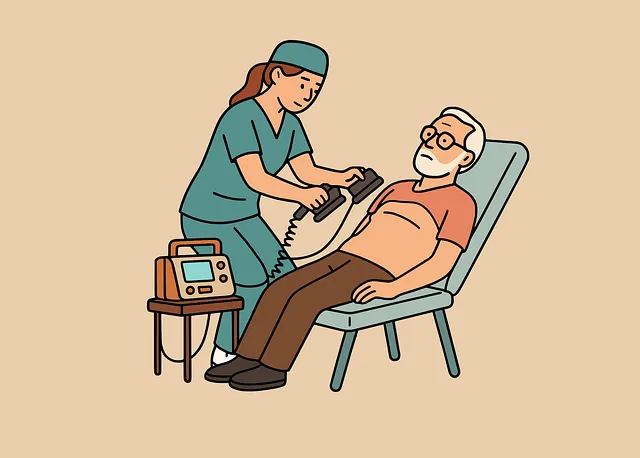Addiction is a complex brain condition requiring specialized therapy from kaiser in network therapists. Kaiser offers tailored evidence-based approaches, including CBT and MI, for individuals with addictions and co-occurring mental health issues. Their network includes experienced male counselors and provides accessible virtual appointments. Through outpatient services, peer support, and diverse treatment options, kaiser therapists help clients overcome addiction, regain control, and achieve long-term recovery. Aftercare collaboration ensures comprehensive care catering to cultural needs and physical health connections.
“Addiction is a complex, yet treatable, condition that requires specialized care. This comprehensive guide explores various aspects of addiction therapy, focusing on effective strategies for recovery.
We delve into the intricacies of understanding addiction, highlighting the critical role of Kaiser in network therapists who offer tailored support. From comprehensive overviews to unique treatment approaches and individualized plans, this article covers every step of the path to sobriety. Learn how supportive care and relapse prevention techniques contribute to long-term recovery, ensuring a bright future for those seeking freedom from addiction.”
- Understanding Addiction: A Comprehensive Overview
- The Role of Kaiser in Network Therapists
- Specialized Therapy Approaches for Different Addictions
- Individualized Treatment Plans: Tailoring to Unique Needs
- Supportive Care and Relapse Prevention Strategies
- Long-Term Recovery: Sustaining Sobriety Through Aftercare
Understanding Addiction: A Comprehensive Overview

Understanding addiction involves recognizing it as a complex, chronic condition that affects the brain and behavior. Unlike temporary lapses or poor choices, addiction is characterized by intense cravings, loss of control over substance use, and continuing to engage in harmful behaviors despite negative consequences. It’s not simply a matter of willpower; underlying factors such as genetics, environment, and mental health play significant roles in its development and persistence.
For effective treatment, seeking specialized therapy from kaiser in network therapists is crucial. Network therapy for anxiety kaiser offers evidence-based approaches tailored to address addiction’s multifaceted nature. Virtual kaiser therapy appointments provide accessibility and flexibility, making it easier for individuals to find a female kaiser therapist who aligns with their needs and preferences. By combining therapeutic techniques with support networks, this comprehensive approach aims to help individuals overcome addiction, regain control of their lives, and achieve long-term recovery.
The Role of Kaiser in Network Therapists

In the realm of specialized addiction therapy, Kaiser stands out as a prominent player in the network of healthcare providers. With its extensive reach and resources, Kaiser offers a robust platform for connecting individuals struggling with addiction to qualified therapists. The organization’s commitment to mental health services ensures that many people have access to effective treatment options. One notable aspect is their focus on gender-specific care, featuring experienced kaiser male therapists for men, catering to the unique needs of male patients.
Kaiser’s selection process for therapists is stringent, prioritizing professionals with robust qualifications and specialized training in addiction counseling. This ensures that only the most competent practitioners are available through their network. Furthermore, Kaiser leverages telehealth therapy options, making it convenient for individuals to access professional help from the comfort of their homes. This modern approach expands accessibility, especially beneficial for those who may face barriers in attending in-person sessions.
Specialized Therapy Approaches for Different Addictions

Specialized therapy approaches cater to the unique needs of individuals struggling with various addictions. One prominent option is cognitive-behavioral therapy (CBT), which focuses on identifying and changing negative thought patterns and behaviors associated with substance abuse. CBT has shown effectiveness in treating alcohol, drug, and even gambling addictions by empowering patients with coping mechanisms. Another evidence-based method, motivational interviewing (MI), uses a client-centered approach to enhance motivation for behavior change, making it ideal for those ready to embrace recovery but facing ambivalence.
For those seeking support specifically through kaiser in network therapists, options include both outpatient and insurance-covered therapy services. Kaiser addiction recovery support leverages these resources to offer comprehensive care, addressing not just the addiction but also underlying mental health conditions. This integrated approach ensures that individuals receive holistic treatment tailored to their specific needs, ultimately improving their chances of successful long-term recovery.
Individualized Treatment Plans: Tailoring to Unique Needs

Addiction is a complex issue that requires personalized attention to effectively manage and overcome. Individualized treatment plans are at the core of specialized therapy for addiction, ensuring that each client receives tailored support aligned with their unique needs. This approach recognizes that everyone’s journey with addiction is distinct, shaped by personal circumstances, triggers, and underlying conditions.
When seeking treatment through a network like Kaiser, clients have access to a diverse range of licensed therapists who are trained to create customized recovery strategies. These professionals consider factors such as the type and severity of addiction, co-occurring disorders (like anxiety), and individual goals to design evidence-based therapies. With options including counseling, group therapy, and online sessions, finding a Kaiser therapist that suits one’s preferences and requirements is made easier. This personalized approach not only improves outcomes but also fosters a sense of empowerment in the recovery process.
Supportive Care and Relapse Prevention Strategies

Supportive care is a vital component of specialized therapy for addiction, focusing on providing emotional and practical assistance to individuals in recovery. This aspect often involves peer support groups, family therapy, and individual counseling sessions aimed at fostering a safe and encouraging environment. Kaiser in-network therapists play a crucial role here, offering evidence-based practices like cognitive-behavioral therapy (CBT) to help clients manage triggers, develop coping mechanisms, and maintain sobriety. These strategies are instrumental in preventing relapse, a common challenge on the path to long-term recovery.
In addition to CBT, Kaiser provides access to diverse treatment options tailored to specific needs. For instance, those struggling with eating disorders can benefit from kaiser eating disorder specialists, while individuals dealing with depression may find relief through kaiser depression treatment options. Marriage and relationship counseling, also available within the network, addresses co-occurring issues and strengthens support systems, as relationships often play a significant role in both enabling and supporting recovery from addiction.
Long-Term Recovery: Sustaining Sobriety Through Aftercare

Many individuals who have successfully completed an initial phase of addiction treatment wonder about long-term recovery and how to sustain sobriety. Aftercare plays a crucial role in this journey, offering ongoing support that can make or break someone’s path to lasting recovery. This is where specialized therapy comes into focus, especially for those within the Kaiser network who have access to a diverse range of therapists.
Kaiser in-network therapists provide valuable resources for continued care, often including virtual Kaiser therapy appointments as part of their services. These sessions cater to various needs, ensuring individuals receive tailored support. Furthermore, with a commitment to cultural competency, some Kaiser therapists specialize in addressing unique challenges faced by diverse populations, making the aftercare experience more inclusive and effective. A Kaiser primary care therapist referral can also facilitate access to comprehensive care, linking individuals to specialists who understand the intricate relationship between physical health and mental wellness.
Addiction is a complex condition that requires specialized therapy for effective recovery. By understanding the unique aspects of each addiction and tailoring treatment plans accordingly, we can enhance the chances of long-term sobriety. Kaiser’s role in networking therapists is pivotal, ensuring access to a diverse range of professionals who can address various addiction types. With individualized care, supportive strategies, and aftercare programs, individuals can navigate their recovery journey successfully. Remember that specialized therapy, when combined with dedicated support, is key to overcoming addiction and embracing lasting change.






